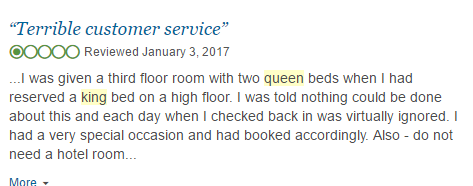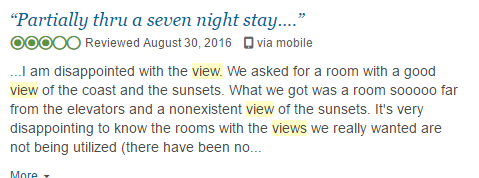Start By Giving Them the Wrong Room
By Pierre Boettner
The hotel industry thinks it has this issue figured out—the one of room assignments, that is. I am here to tell you that it does not. Far from it in fact, and guests notice in a big way. For those guests who don’t get the right room, it is ruining their experience from the get-go.
Let’s first just be clear, reset the dial. We talk a lot about what travelers want. They want free Wi-Fi, the best guest service, mobile check-in, and so on. However, we’re getting so wrapped up with these things that we’ve lost sight of what they truly came for. First and foremost, what travelers need from a hotel is a place to sleep that feels comfortable and safe. A pillow on the bed size they want in the room size they specified. They need the room that they need, the one that they requested because they requested it for a reason. I can’t overstate the importance of this. Someone asking for a King bed isn’t a luxury request; it is a very real and significant obligation for your hotel to deliver upon at the most basic level. And guests are at your mercy for that. The very least you can do is deliver on the fundamentals.
Unfortunately, hotels are not delivering. In our “2016 Check-in Experience Survey,” we found that only 5% of guests are given the room they request on a regular basis. A shocking 95% said they only “sometimes” are assigned the anticipated room. Our research shows that misalignment in the systems that handle room allocations occurs approximately 60% of the time.
The process is broken, and the break begins in the booking process. With so many technologies at play in distribution, few of which are truly integrated, there are bound to be missteps, but this is a particular area where we need to solve for mistakes. The first line of defense is ensuring as much technological integration as possible, but this is a challenge for the industry at large, one that is going to require a near-political movement. The second step is to leverage technology with a seamless interface that displays room types and features availability in real time. This technology needs to eliminate the “special requests” text box, because honestly when was the last time you put a note in that text box and actually got the bottle of wine you requested, or checked the box for a foam pillow and received it? These are regularly overlooked issues. That said, only part of the problem is human error; most of the problem is technology.
Leaving room allocation to be handled by the Front Desk as a pre-registration task creates unnecessary problems. Room allocations, along with special requests, can and should be happening during the booking process, in real time on the hotel website, and guests should feel confident that they are guaranteed their chosen room.
If you think this is a small issue when it comes to guest satisfaction, think again. Look at these reviews.
Allocating the wrong room has very real and costly ramifications. Note that two of these reviews focus entirely on having been dealt the wrong room. In these cases, it appears that the room allocation process wholly ruined a guest’s stay. Which then became a bad review, which then affected your reputation, which has far-reaching effects on your ability to achieve optimal rates and earn new business.
Poor reviews are just one among the costly issues associated with room allocation problems. Perhaps your hotel is savvier at managing guest disappointment in the event that their chosen room type is not available. Typically this looks like offering an upgrade (read: lost revenue potential) and potentially disappointing a loyalty member who would have been in line for that upgrade. I can only imagine this is the case when considering that the vast majority of respondents who identify as loyalty guests say they “sometimes” get a better room assignment than a non-member. Shouldn’t this say “often” if not “always”?
Reading the spate of trends pieces for this year, we have learned that, among other things, guests are looking for high design even in mid-scale hotels. They want it “to look good, and feel good,” says Skift. That’s all well and good, but if they don’t get the room they want, the hotel’s aesthetic is going to matter a whole lot less. We need to go back to the basics as an industry, so that we can first meet guests’ needs, we need to be able to deliver mobile check-in that works and deliver products and services on-property to ensure guest satisfaction then maybe we can hire notables to design our spaces.









